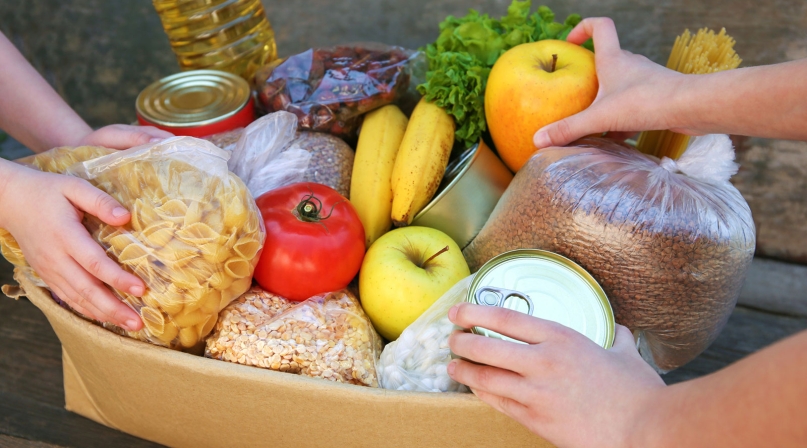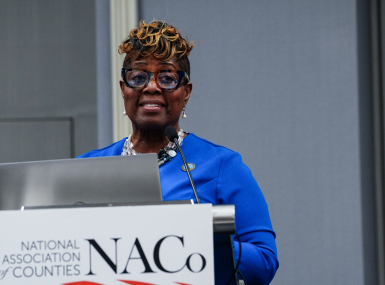President Biden signs executive order to increase federal food benefits and expedite stimulus checks
Author
Upcoming Events
Related News

Key Takeaways
On January 22, President Biden signed an Executive Order (EO) that expands and extends federal nutrition assistance programs, like the Supplemental Nutrition Assistance Program (SNAP), to aid families and individuals affected by the COVID-19 pandemic. It also aims to provide equitable emergency relief by ensuring the delivery of direct stimulus payments, expanding unemployment eligibilities and simplifying the federal benefits process. Counties have played a critical role in providing food assistance and other anti-poverty supports in cooperation with our federal and state partners, especially in the 10 states where counties are responsible for administering the SNAP program. This EO will increase federal resources for those efforts in the near term as Congressional negotiations over the President’s proposed relief package continue.
The COVID-19 pandemic has led to a drastic increase in household food insecurity in the United States and vulnerable children and families have faced new obstacles in accessing consistent, healthy meals. In a win for counties and our residents, Congress in December bolstered emergency food assistance for COVID-19. President Biden’s EO builds on those provisions by directing USDA to apply that legislation’s temporary 15 percent SNAP benefit increase to the Pandemic-EBT program, which offers SNAP benefits to low-income students who have lost access to school meals due to the pandemic.
Additionally, the EO asks USDA to explore options for making very low-income households eligible for SNAP emergency allotments even if they are already receiving the maximum monthly benefit. Such a step could mean an additional 12 million people receive enhanced SNAP benefits during the pandemic, which would further relieve pressure on county social service systems and local food banks. To increase the effectiveness of the SNAP program in the long-term, the EO also asks the USDA to update the underlying SNAP benefit formula to better reflect the modern cost of a healthy basic diet. Counties support increasing the value of the monthly SNAP benefit.
In addition to the extension of SNAP benefits, President Biden’s executive order asks the Department of Treasury to expand and improve delivery of Economic Impact Payments including establishing online tools for claiming payments and working to make sure that those who have not yet accessed their funds get the relief they deserve.
Counties applaud federal efforts to support and protect our most vulnerable residents as we continue to grapple with the economic effects of the COVID-19 pandemic. NACo supports additional state and local aid in future relief packages and will continue to monitor developments in nutrition and anti-poverty programs. To learn more about how county governments can prevent food insecurity, register for the NACo’s Feburary 5th webinar, Fighting Food Insecurity During COVID-19 and Beyond: Updates for County Leaders.
Additional Resources
- White House Fact Sheet on Executive Order
- NACo Legislative Analysis: Year End COVID-19 Relief and Omnibus Spending Package
- NACo Legislative Analysis for Counties: President Biden’s COVID-19 Rescue Plan
- NACo Policy Brief: SNAP
- NACo Blog: NACo joins more than 2,500 groups to call for increased food assistance to respond to COVID-19
Resource
Legislative Toolkit for Counties: Priorities for Strengthening the Supplemental Nutrition Assistance Program (SNAP)

Related News

National Association of Counties Launches Initiative to Strengthen County Human Services Systems
The National Association of Counties (NACo) announces the launch of the Transforming Human Services Initiative, a new effort to help counties modernize benefits administration, integrate service delivery systems and strengthen county capacity to fulfill our responsibility as America’s safety net for children and families.

Congress seeking ‘common-sense solutions’ to unmet mental health needs
Rep. Andrea Salinas (D-Ore.): “Right now, it is too difficult to access providers … and get mental health care in a facility that is the right size and also the appropriate acuity level to meet patients’ needs.”

Prince William County transforms crisis care through "No Wrong Door" approach
Prince William County, Va.’s Crisis Receiving Center is bridging the gap between emergency room care and traditional outpatient care in behavioral crisis response and reducing burden on local law enforcement and hospitals.
